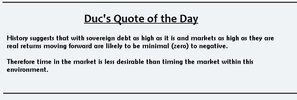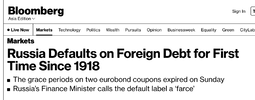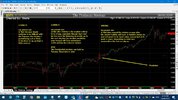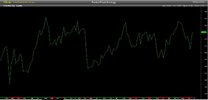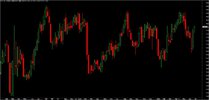- Joined
- 13 February 2006
- Posts
- 5,427
- Reactions
- 12,687
Timing the markets versus time in the markets
It's often said that timing the market rarely works, however trading this way can be profitable. There is also an alternative that can be just as profitable "over time". I'm saying, having a combination of both can smooth out your returns. Staying invested instead of trying to time the market, particularly for those looking for long-term returns is a proven & effective option to grow your wealth. The biggest benefit of staying fully invested alleviates the pressure to consistently time the market. Timing the markets during difficult times is a big ask & nearly impossible to do all the time.
Staying invested is less stressful
Historically, over time the markets tend to rise, generating better than shabby returns. Being always invested means you can ride out the downward volatility of market corrections as quality companies tend to shine after periods like those at present. I’m not saying that you can take your eye off the ball but rather you can enjoy capital appreciation without worrying about every gyration the market throws at you to shake you out.
Traders sell when investors hold
Investors may be tempted to sell stocks during downward volatility where traders generally do, which in the long run may not be in a trader's best interest. While selling during downward volatility can reduce stress & hopefully avoid deeper losses, could mean locking in losses & missing the market’s inevitable rebound. Whether you elect to invest or elect to trade is one of those personal decisions. Personally, I tend to do both.
Skate.
@Skate
The eternal question. Because my response was lengthy, I made it a blog post: https://mrromulus789137764.wordpress.com/2022/06/25/caught-my-eye/
For brevity however: if 'time in' the market, selection of class or classes is important. If 'timing' this selection should be part of the process, but would require (if mechanical) scanning all markets (if stocks are considered 1 market) so that you don't miss the bull and get caught in the bear.
jog on
duc

